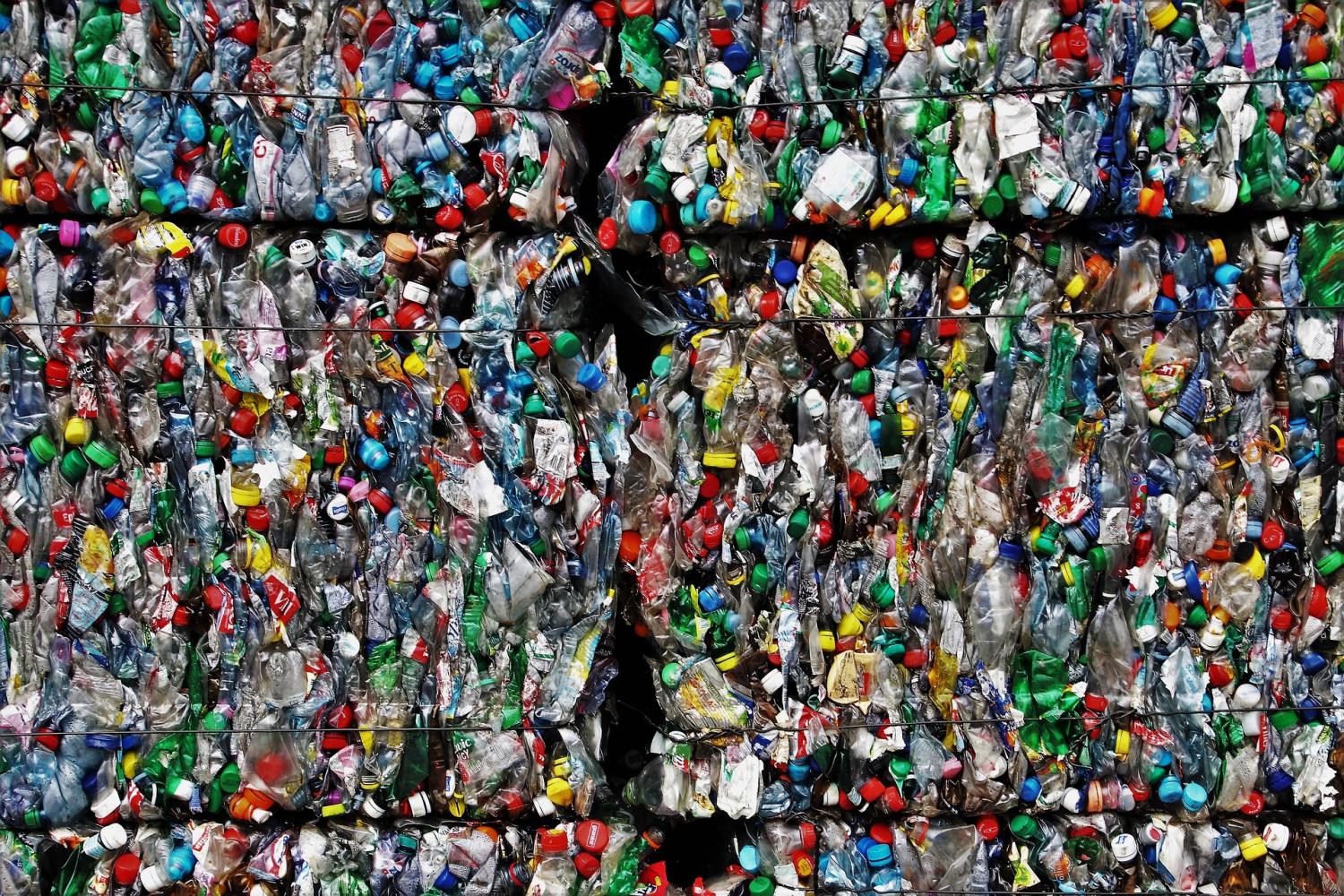
It's been quite the roller coast for the recycling industry. In January 2018, China severely restricted the import of recyclables in an effort to crack down on pollution. In particular, the ban targeted mixed paper and mixed plastics, limiting how much contamination can be present in recyclable materials. For example, imagine trying to recover plastic from a dirty diaper versus a used plastic berry container.
Major exporters of this type of scrap, namely the United States, nearly went into panic mode. Americans make up roughly 5 percent of the world’s population, but according to various studies, generate nearly 40 percent of the world’s total waste. According to the U.S. EPA, earlier this decade, the average American discarded as much as 4.4 pounds of trash a day - or four-fifths of a ton (over 1600 pounds).
China says no to being the globe's recycling bin
Previously, from 2005 to 2015, China imported nearly half of all plastic scrap globally. Figures from the United Nations Comtrade Database show that in 2015 alone, exports of all scrap commodities from reporting countries approached 180 million metric tons valued at more than $86 billion.
Scrap can be integrated into manufacturing supply chains at mass scale and with significant cost savings. While the U.S. was the largest exporter of recycled commodities in the world, and China was the world’s dominant consumer of scrap commodities, change is happening.
When China’s ban on scrap imports began leading to backlogged materials and stockpiling in the U.S., municipalities started hitting the brakes on recycling programs. Yet in a 180-degree turn of events, Chinese manufacturers that require wastepaper and flattened bottles for their production needs started investing in U.S. scrap recycling opportunities.
A ban generates new opportunities
ND Paper LLC, a wholly-owned subsidiary of Hong Kong-based Nine Dragons Paper Limited, invested $500 million over the past year to buy and expand or restart production at paper mills in Maine, Wisconsin and West Virginia. As one of the world’s largest producers of cardboard boxes, Nine Dragons relies upon mass quantities of scrap to be turned into pulp to make boxes.
ND Paper also completed the acquisition of a recycled pulp mill in West Virginia. The mill will be used to increase the organization’s capacity to manufacture and distribute recycled pulp, which is used in a wide range of products, from packaging to tissue paper.
Domestic projects are coming online too. Several American owned and operated paper mills, plastic recycling plants and materials recovery facilities (MRFs) are reevaluating operations and policies in order to adapt to this major industry shift.
In California, five plastics recycling projects will receive millions in state funding to expand efforts. From a food and agriculture packaging producer who will process an additional 2,000 tons of PP and PE per year to a reclaimer who will produce decontaminated, food-grade HDPE from post-consumer packaging and agricultural film, these efforts are keeping plastic out of landfills and finding useful solutions for recycled plastic materials.
Memo to the world: mind, and mine, your own recyclables
While there is skepticism such efforts aren’t grand enough, if countries like the U.S. are thwarted from selling trash to other nations to process it, then processing efforts must be beefed up domestically and new solutions will need to be developed - or, at some point similar to China, the U.S. will need to stop accumulating scrap.
In addition, as other nations like Malaysia replicate China’s ban and send back contaminated scrap materials, a clear message is being sent: nations are working to provide their citizens a clean environment to live in.
For the U.S., this means shipping millions of pounds of waste to other nations to process it may longer be an option. As the U.S. and other countries continue to explore scrap processing operations, questions of proper management, environmental consequences and companies that use the most of these recycled materials should be considered. If the trend continues that exporting recovered waste will become increasingly more difficult, nations need to build up domestic infrastructure in order do everything they can to reduce waste.
Image credit: Pixabay

Based in Michigan, Sarah is passionate about sustainability, storytelling and bringing to light sustainability principles that can be threaded into business strategies and communications. Formerly an editor for CSRwire and freelance writer for many organizations forwarding the principles of corporate social responsibility and circularity, she is excited to be a contributor to TriplePundit. Connect with Sarah on LinkedIn and Twitter.














